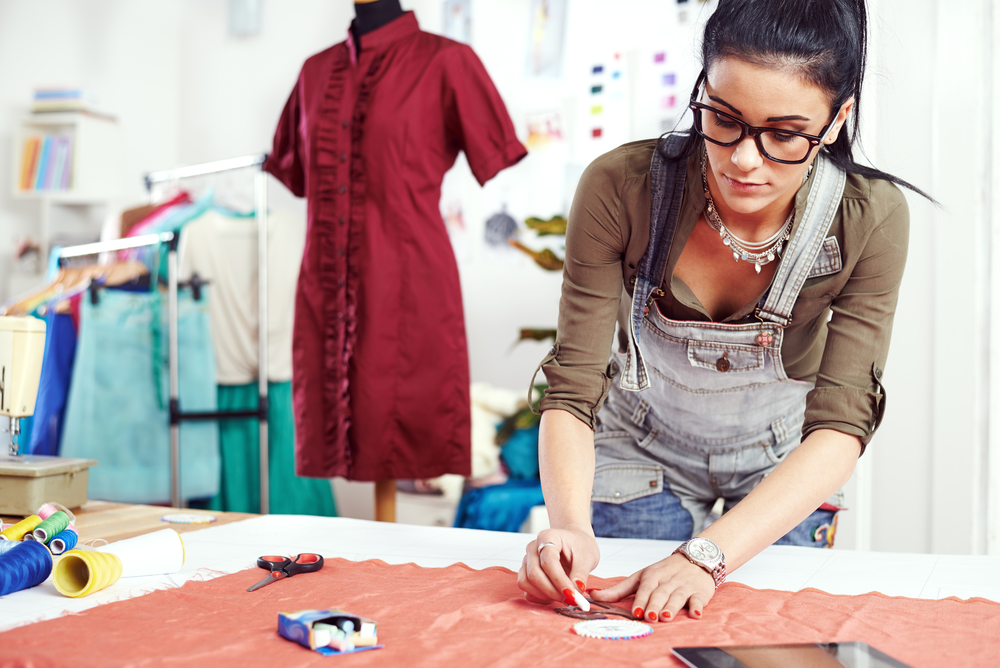Sewing is a specialized occupation where you should continuously strive hard to become a successful professional. One of the essential things that you should know is to cultivate good habits and also avoid bad habits when carrying out all your sewing projects.
Bad sewing habits can ruin an entire sewing project and significantly affect your sewing success even when you have the support of a good cover-stitch machine. Here are some of the bad habits that you should avoid to become successful in your sewing career. By the way, check out our Singer Heavy Duty 4452 review here.
Using Regular Pens To Mark Your Fabric
When you want to mark your fabrics during your sewing tasks, you should not use regular ink pens. Remove all ink pens out of your working space to avoid falling into this bad sewing habit and also invest in chalk pencils and water-soluble pens.
When you acquire a new pencil or pen, test it on some fabrics to ensure that the marks can be removed because some water-soluble pens can also stain certain fabrics.
Not Washing Fabrics Before Sewing
You should launder your fabrics before you begin any work. Or else, it might shrink and fail to match the needed measurements. Try to wash the fabric in the same way you plan to wash your finished piece.
Don’t soak the material in cold water, for instance, if you know you intend to clean it using some warm water once you finish working on it.
Holding Sewing Pins and Needles With Your Mouth
You might be used to multitasking by utilizing your mouth to hold items that you’re working on. By doing this, you not only be risking the chances of inhaling a needle or pin into your lungs, but you can also accidentally swallow them into your tummy.
The sharp, pointed objects can cause severe damage to your digestive organ or lungs. So, you should avoid placing sewing pins and needles in your mouth by putting a pin cushion nearby as you work or any other customized object that can hold the pins and needles for you.
Using the Sewing Shears On Other Projects
Your sewing scissors should always remain as sharp as possible to help you cut clean and straight lines. The same thing also applies when changing the rotary blades if that’s your preferred style.
If you use sewing scissors on other things besides fabrics, they will become dull in the long run. Keep a pair of shears which is devoted to sewing projects alone. Similarly, ensure that you sharpen or replace any dull scissors.
Skipping the Ironing Portion
When sewing, you should press the seams to begin creating the preferred shape of the final product not to remove wrinkles in your materials. Ironing will make the fabric to start taking a shape memory, and all the stitches will fall into the preferred outline, producing a more finished look of your piece. The seams will also lie flat, making it pretty easy to join up some new pieces correctly.
Not Cleaning Your Sewing Machine
Threads and fabrics release some tiny fibers known as lint when sewing. The lint can accumulate around the working space of your sewing machine. If you don’t get rid of the lint regularly, it’ll become compressed and will affect the sewing machine’s performance in the long run.
It will also shorten the life of your machine. Sewing machines are also known to catch fire because of the accumulation of lint mixed with oil. It can be a dangerous combination to your sewing machine, which means it’s an incredibly expensive bad sewing habit.
As you go deeper into sewing, the learning process can be rewarding and frustrating at the same time. Nevertheless, it does take a lot of time, patience, and persistence to master the ins and outs of designing your outfits. But if you get started on the right path, building good sewing habits as you learn, you’ll discover that sewing can be one of the most fulfilling hobbies out there.
Having a good foundation, avoiding the above-mentioned bad habits, and developing the right practices from the beginning will save you a lot of time and frustration as you begin experimenting with more complicated sewing projects in the future.

